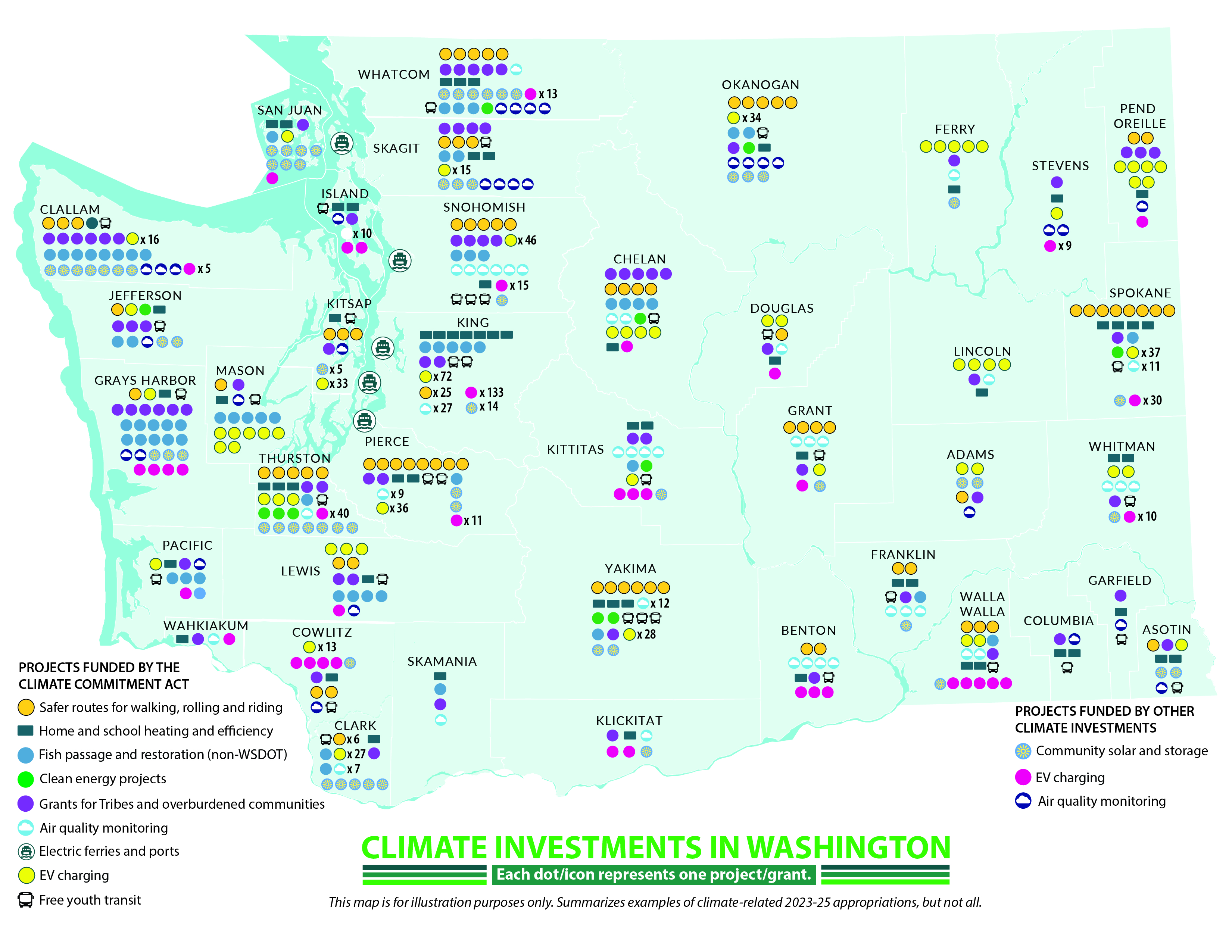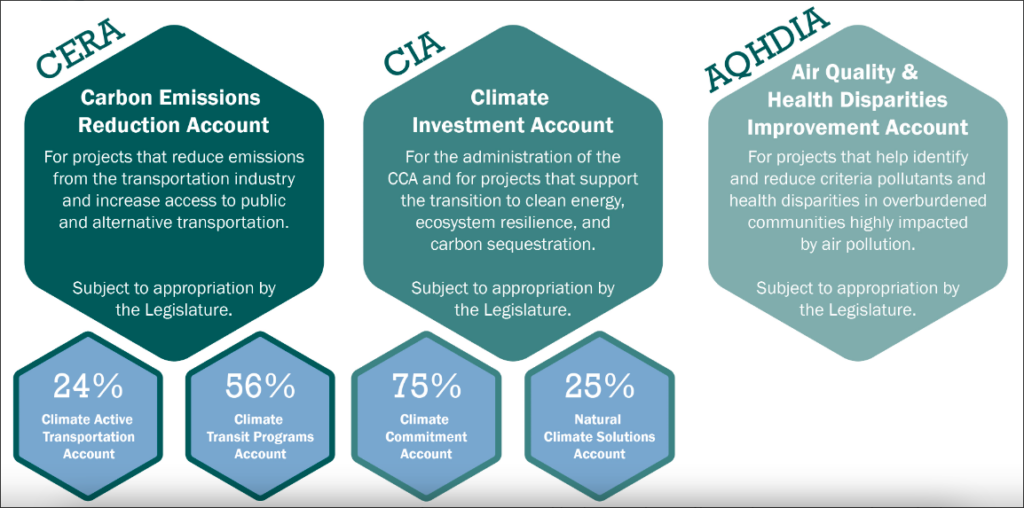By Riley Weeks
What would you do with $1.8 billion?
That’s how much money cap-and-invest auctions raised as part of the Climate Commitment Act (CCA). The Act, passed into law in 2021 makes Washington’s biggest carbon emitters pay for their pollution by auctioning off credits to pollute. The total amount of pollution credits available each year will get smaller over several decades, incentivizing polluters to cut their emissions over time. The money is then invested in solutions that lower carbon in the atmosphere and increase climate resilience in communities across the state. Particular attention is paid to overburdened communities, or those who often face the brunt of the impacts of climate change, polluted water and air.
Over forty of these projects were funded by the CCA in Whatcom County alone — and the Act is only getting started. The nation’s first electric Amtrak bus that silently rolled into Fairhaven’s Amtrak station in 2023, as well as the increase in electric vehicle charging stations in downtown Bellingham are all thanks to the CCA.

Technological solutions aren’t the only projects receiving funding. Twenty five percent of CCA funds are put into a Natural Climate Solutions Account. Money from this fund goes directly towards repairing and protecting fish and wildlife habitat, increasing flood protection measures like riparian zones and protecting communities from wildfire risk. Sustainable agricultural solutions like grant money for anaerobic digesters on dairy farms are also funded by the CCA. Funding is also allocated to tribal communities through the Tribal Carbon Offset Assistance and Tribal Consultation grants. Allocated grant money can be used to create carbon offset projects on federally recognized tribal land, as well as provide tribes with a stake in how CCA money is spent.
Here’s an interactive map of CCA-funded projects currently underway.
Read more: 650 acres of forest conserved in Whatcom County thanks to Climate Commitment Act funds

But now, further funding is at risk on the ballot in November. Initiative 2117 would repeal the CCA, which spells bad news for the countless climate resilience programs that benefit from the injection of money.
Losing the CCA would be a huge setback towards Washington’s carbon pollution reduction goals. It would make achieving a 95% reduction in carbon emissions by 2050 even more difficult. Our community deserves a healthy, resilient climate. The CCA helps us get there.
